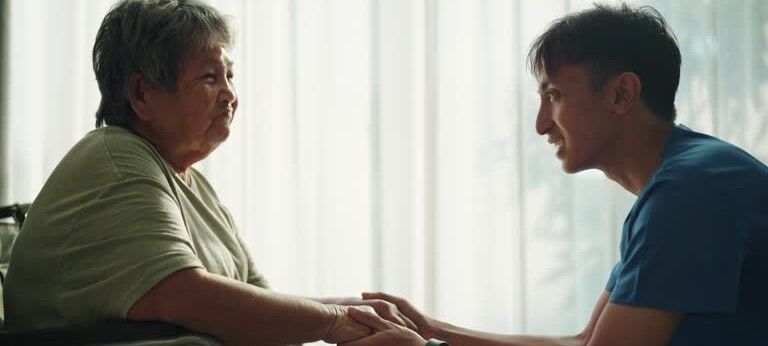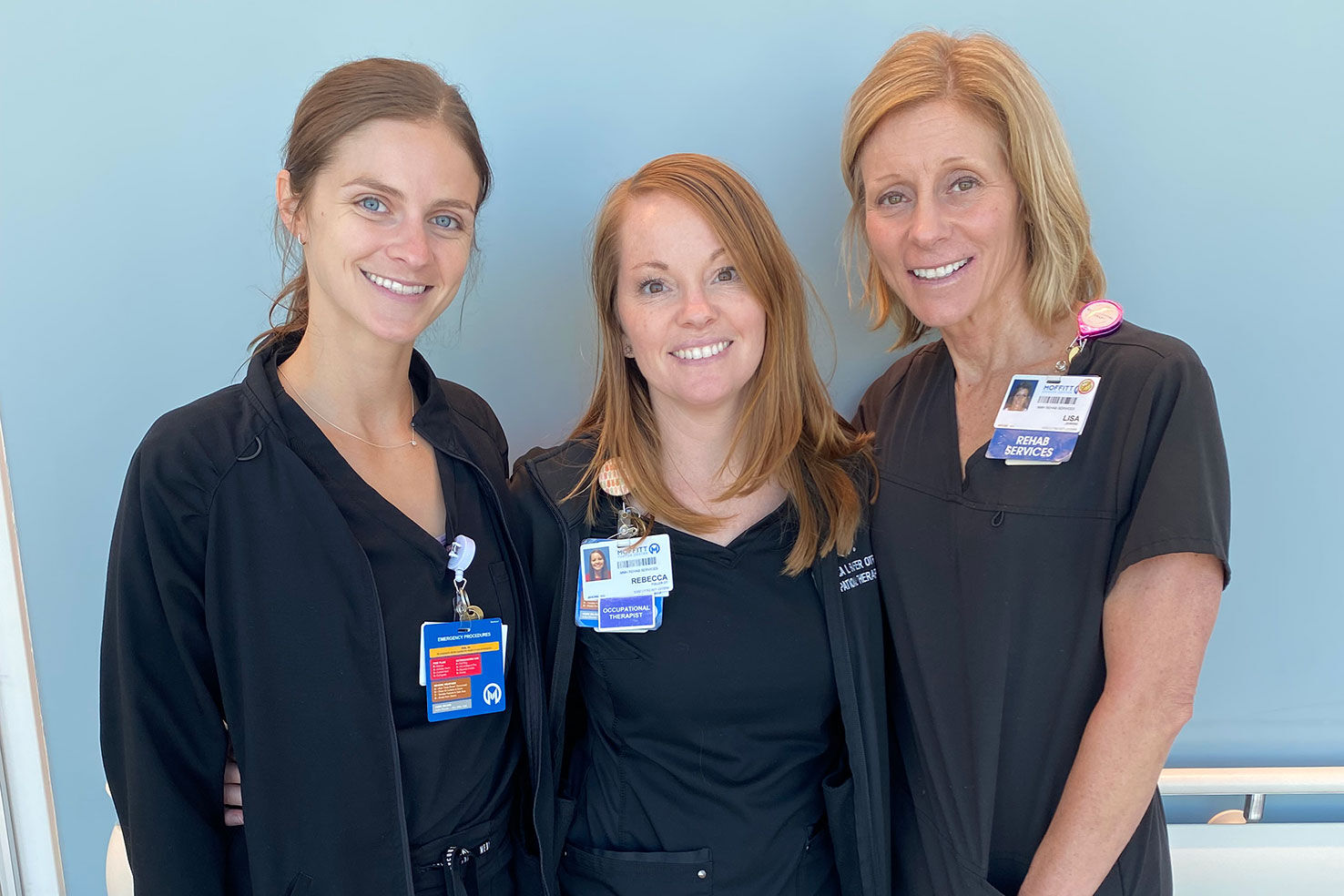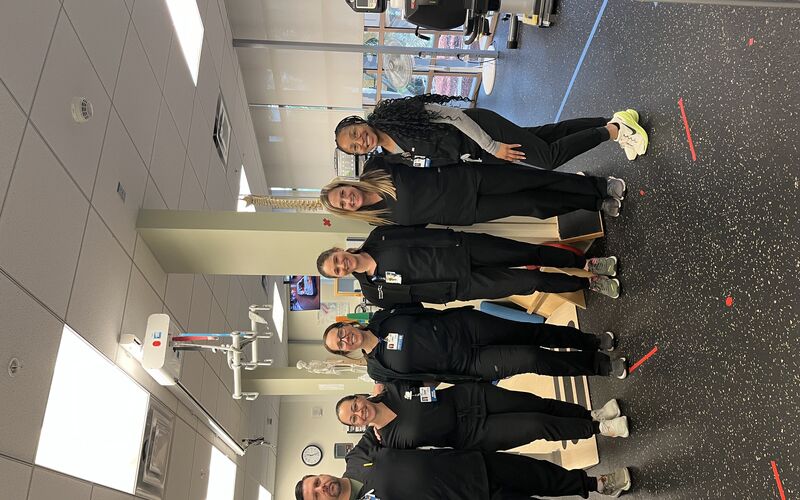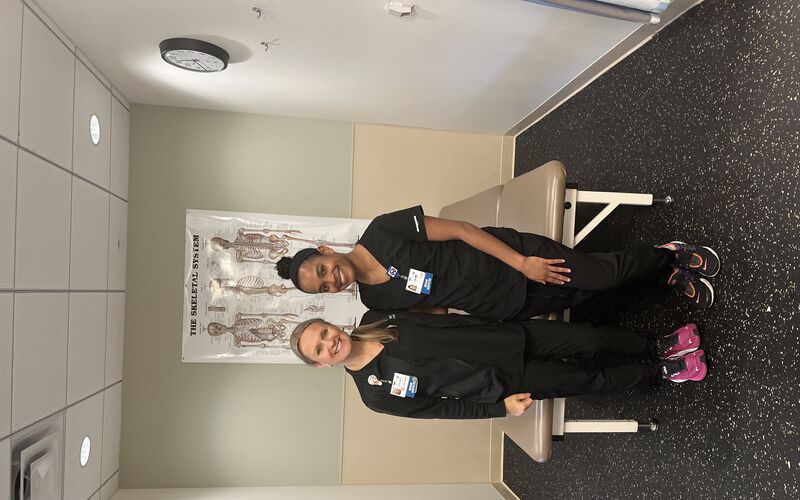6 Questions With an Occupational Therapist

Prichelle Morrison shares the incredible work of occupational therapists at Moffitt.
April is Occupational Therapy Month, and it’s the perfect time to recognize the silent heroes who play an essential role in improving the quality of life for many patients at Moffitt Cancer Center. Occupational therapists work behind the scenes to help patients regain their independence and navigate everyday tasks after life-changing events, such as surgeries and health issues.
In honor of this month, we sat down with Prichelle Morrison, one of Moffitt’s lymphedema occupational therapists, to learn more about the incredible work occupational therapists do. She explains that while there is a lot of overlap with physical therapy, the primary difference lies in the “why” behind what they do. Physical therapists focus on movement and strength, while occupational therapists dive deeper into helping patients continue their daily activities and tasks in meaningful ways despite physical or cognitive challenges.
What does an occupational therapist do?
Occupational therapists focus on a person’s functional mobility and their ability to perform daily tasks like bathing, dressing and toileting, especially after surgery or injury. For example, suppose someone has had back surgery and can’t bend over. In that case, the occupational therapist will help them figure out how to put on their socks or shoes. If someone has a new visual deficit, the occupational therapist will teach them how to scan their environment or help them modify tasks. They train patients to use medical equipment or make modifications to their home to support their recovery, all while considering their health and ensuring that patients continue to engage in activities that are important to them.
What is the hardest part of your job?
One of the biggest challenges is the resistance to the unknown. Many people don’t realize the value of occupational therapy until they experience it themselves. Education is key, whether it’s educating patients about what occupational therapists do or teaching co-workers about the benefits of occupational therapy. I believe that if patients could see an occupational therapist more routinely after surgeries, they might be more open to the services provided.
What is the most rewarding part of your job?
The most rewarding aspect of my job is being a part of someone’s journey. Whether it’s helping a patient recover from a neurological event or managing lymphedema, contributing to a patient’s recovery is incredibly fulfilling. Knowing that I’m part of a team that helps someone get better makes it all worth it.
How do you cope with challenging situations?
Working in a field where patients face significant challenges can be emotionally taxing. However, I always emphasize the importance of mindfulness and self-care. Simple activities like stepping outside for lunch or watching something lighthearted can help me reset. I also focus on the fact that I’m doing my best for every patient, and if my own energy is low, I know I need to take time for myself to continue to give my best to others.
What would you like people to know about occupational therapy?
Occupational therapists can be an asset to health care. Whether it’s in the hospital or outpatient settings, occupational therapists are there to provide education and help patients with things they might not have known or to find new ways to accomplish tasks they’ve been struggling with. Even a single visit can make a significant difference.
What keeps you coming back?
My occupational team! We are so supportive of each other. Whether sharing caseloads in the hospital to make sure no one is overwhelmed or covering for each other in the outpatient clinic to make sure patients are getting scheduled as early and consistently as possible. We all spend so much time advocating for our discipline. One thing about the occupational therapy team here, we are all finding ways to grow and continue our education to better serve the community.
As we continue to celebrate Occupational Therapy Month, it’s a reminder of the important and life-changing work occupational therapists do every day. If you or someone you know is facing a challenge that impacts their ability to perform daily tasks, don’t hesitate to reach out to Occupational Therapy.







